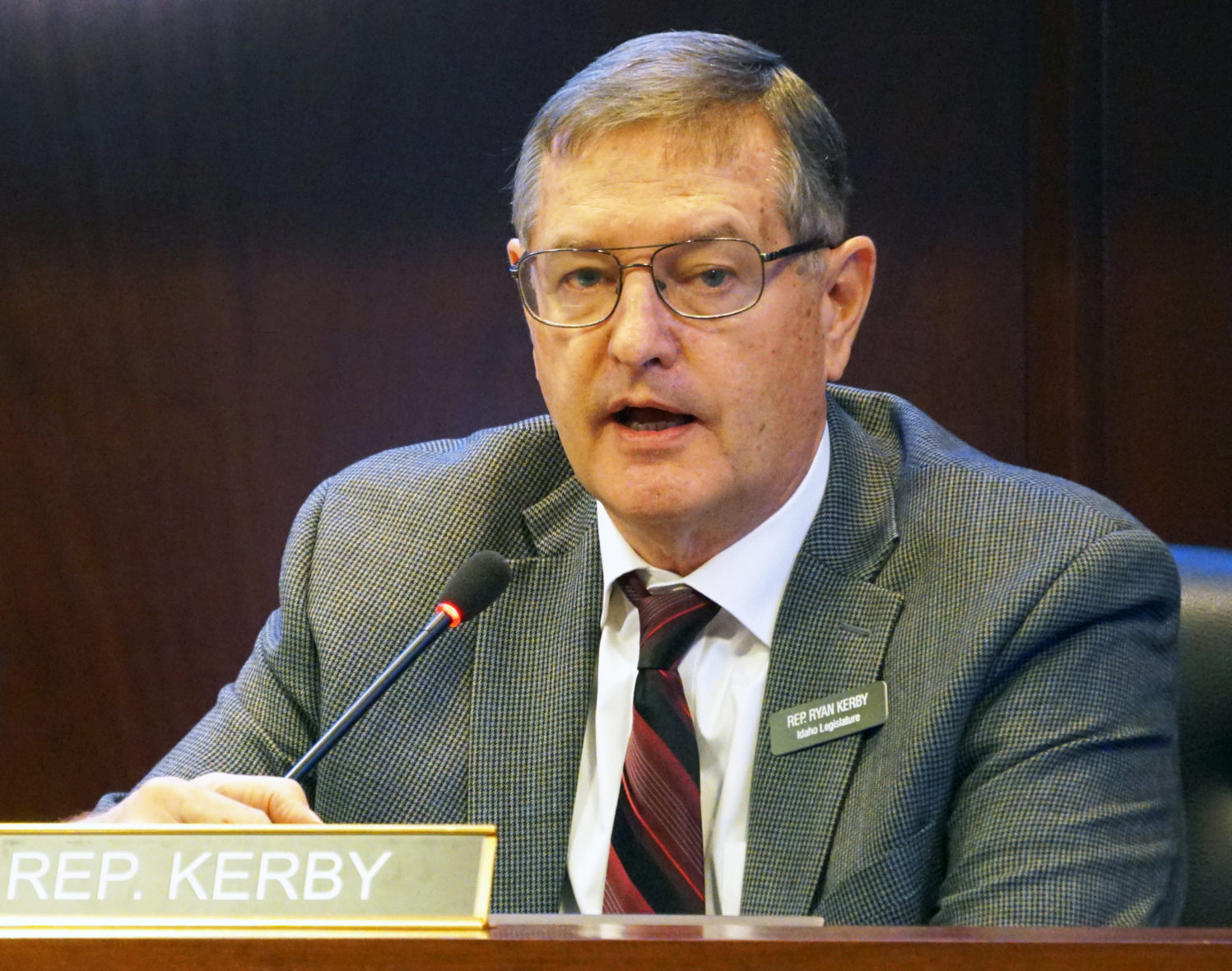A bill that rolled through the Senate fell off the rails in the House Friday.
After a convoluted hearing, the House Education Committee sent one of state superintendent Sherri Ybarra’s bills to the House floor for amendment.
The proposal in question is Senate Bill 1057, which is designed to remove some redundant state reporting requirements. The idea comes from Ybarra’s “red tape committee,” a panel of school administrators that was convened to look for ways to streamline reporting requirements.
On Feb. 25, the Senate approved the bill on a 35-0 vote.
On Friday, House Education members fixated on two lines in the two-page bill: a section to strike a requirement for an end-of-year report on a school’s progress on “the previous year’s improvement goals.”

That deletion rankled Rep. Ryan Kerby, a retired school superintendent and the committee’s vice chairman. He lamented that student test scores have stagnated — even though, he said, the state has put $400 million into the “career ladder” to boost teacher pay. (That $400 million figure, which went unexplained, is inflated. The career ladder carries a $250 million pricetag over five years.)
”I just want some discussion at the end of the year about what happened with our money,” said Kerby. R-New Plymouth.
Schools still have to report annual process, said Marilyn Whitney, Ybarra’s legislative liaison. That’s part of a new school “report card” that districts and charters must post online. SB 1057 would simply eliminate a duplicative report.
Some committee members seemed to take Whitney’s assurances to heart.
Still, confusion ensued.
Lawmakers made three competing motions: one to hold the bill; one to send the bill to the floor with a recommendation that it pass; and a third to amend the bill.
Rep. John McCrostie, D-Garden City, led the push to amend the bill. He said he didn’t want to see the bill die in committee. So he wanted to send the bill to the floor, in hopes of restoring the language requiring an end-of-year report.
The committee passed McCrostie’s motion on a voice vote, so it never voted on the competing motions.
From here, the prospects are as murky as Friday’s hearing.
When a bill goes to the floor for amendment, any lawmaker can propose any change. That could results in language that changes a bill entirely, or language designed to kill a bill entirely — a “hostile amendment,” in Statehouse lingo.
In addition, the Senate would have to sign off on any House-passed amendment.
Teacher salary ‘trailer bill’
State budget-writers unanimously approved a $3.8 million “trailer” appropriation bill Friday to pay for the first year of Gov. Brad Little’s proposal to raise minimum teacher salaries.

The Joint Finance-Appropriations Committee didn’t originally include the $3.8 million in the public schools budget. But after the House and Senate passed Little’s policy bill, House Bill 153, to raise the minimum salary, JFAC reconvened Friday to pass the $3.8 million spending bill.
This is called a “trailer bill” in legislative lingo because it follows behind the main budget bills. The House and Senate have already passed the seven K-12 budget bills.
Under Little’s proposal, Idaho’s minimum teacher salary would increase to $38,500 in 2019-20 and $40,000 in 2020-21. Little’s proposal also raises salaries in the other two cells of the “residency rung” of the career ladder salary law to ensure teachers would not see a pay decrease after the minimum goes up.
Currently, the minimum teacher salary is set at $35,800.
“We all understand how critical it is to have high quality teachers in our classrooms, and I think this will help use attract and retain bright teachers for Idaho,” said Rep. Paul Amador, R-Coeur d’Alene.
Sen. Janie Ward-Engelking, D-Boise, said about 30 percent of Idaho’s newly certified teachers don’t take teaching positions in Idaho or move out of state after becoming certified.
“I hope this will entice them to stay in Idaho,” Ward-Engelking said.
The $3.8 million bill passed JFAC 18-0. It still must pass the House and Senate before the session adjourns.
Winder seeks review of funding for school construction
An influential senator wants his colleagues to take a closer look at school building issues.
Sen. Chuck Winder wants the Legislature to appoint an interim committee to study the way Idaho pays for building construction and maintenance. The idea, according to his proposal, is to “identify any inadequacies with the current funding methodology.”
Interim committees spend the legislative off-season studying complicated issues. Winder, the Senate’s majority leader, is no stranger to this process. The Boise Republican has spent the past three years co-chairing a committee that studied Idaho’s K-12 funding formula.
Without discussion, the Senate State Affairs Committee voted to introduce Winder’s proposal. It will still have to make its way through both houses by the end of the legislative session.
